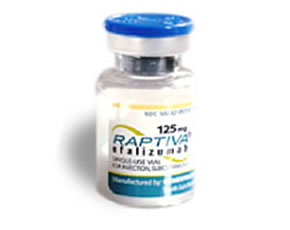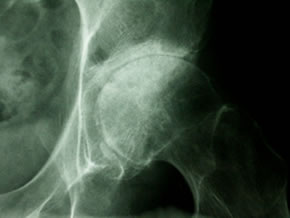
The T-cell inhibitor efalizumab (Raptiva) has demonstrated efficacy in the treatment of moderate to severe plaque psoriasis. However, it has not demonstrated efficacy for the treatment of psoriatic arthritis and, in one study, was associated with worsening of arthritis symptoms. Only a minority of individuals with psoriasis have a concomitant inflammatory arthritis, making therapy with efalizumab an option for the treatment of a large number of psoriasis patients who have no articular involvement.

